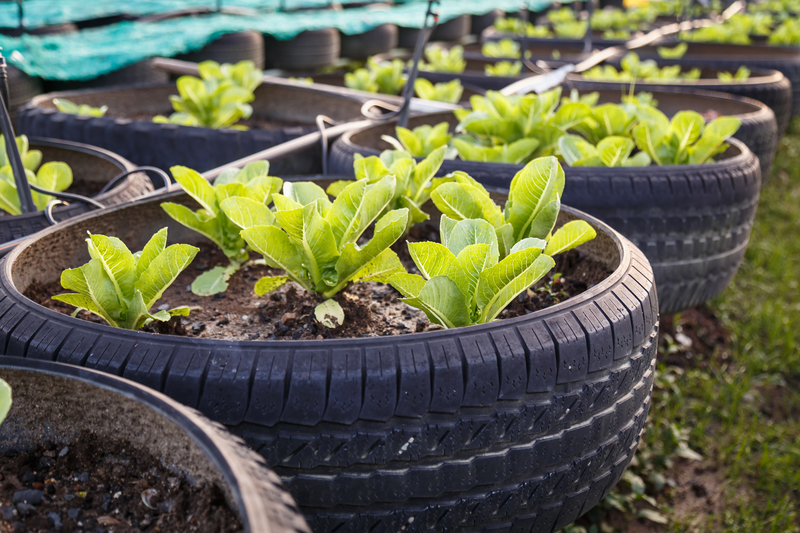Unlock Savings with These Bulky Waste Disposal Techniques
Bulky waste disposal is an essential but often overlooked aspect of household and business management. Whether you are conducting a massive spring clean, relocating, or simply trying to reclaim space, managing bulky waste in a cost-effective, eco-friendly manner is crucial. In this comprehensive guide, we'll walk you through the most efficient bulky waste removal tips and introduce you to smart ways to dispose of unwanted large items while saving money and minimizing your environmental impact.
Understanding Bulky Waste - What Qualifies?
Bulky waste refers to large items that cannot be disposed of in regular household bins due to their size, weight, or material. Common examples include:
- Sofas, armchairs, and couches
- Beds, mattresses, and box springs
- Refrigerators and freezers
- Washing machines, dryers, ovens
- Wardrobes, tables, and cabinets
- Carpets and rugs
- Outdoor furniture and garden equipment
Properly disposing of bulky wastes can be challenging due to their size and the potential for environmental harm if not handled appropriately.

Why Proper Bulky Waste Disposal Matters
- Saving Money: Avoiding landfill fees and unnecessary hauling costs
- Protecting the Environment: Reducing landfill waste and pollution
- Freeing Up Space: Reclaiming valuable storage areas in your home or office
- Enhancing Safety: Preventing trip and fire hazards
- Legal Compliance: Meeting municipal regulations to avoid fines
Cost-Effective Bulky Waste Disposal Techniques
1. Council Collection Services
Your first avenue should always be to explore your local council's bulky waste pick-up service. Many municipalities offer scheduled or on-demand collections for oversized items at low or no cost.
- Check Eligibility: Review your council's guidelines for allowable items, booking procedures, and frequency of collections.
- Save Money: Take advantage of free annual or quarterly pickups, often allotted per household.
- Follow Instructions: Proper preparation (removing doors from appliances, bundling items) ensures smooth collection and prevents fines.
*Tip: Book in advance as slots fill up quickly, especially during spring and autumn clean-up seasons.
2. Donate to Charities and Reuse Organizations
One person's trash is another's treasure! Donating serviceable bulky goods to charities, shelters, or reuse centers is eco-friendly and potentially tax-deductible.
- Contact Local Nonprofits: Organizations like Goodwill, Salvation Army, or Habitat for Humanity often accept furniture, appliances, and more.
- Request Pickup: Many groups offer free collection for larger donations, which saves you hauling expenses and effort.
- Condition Matters: Ensure items are clean and usable to increase chances of acceptance.
Not only do you save on disposal fees, but you also support the community and help reduce landfill waste--a win-win solution!
3. Sell or Give Away Bulky Items
If your large items are in good condition, consider selling or giving them away. This offsets disposal costs and sometimes even earns you money!
- Online Marketplaces: List items on platforms like Craigslist, Facebook Marketplace, Gumtree, or OfferUp.
- Community Boards: Use local community centers, neighborhood apps, or online forums.
- Freecycle Groups: Participate in sharing and swapping networks dedicated to bulky item recycling.
*Tip: Provide clear photos and detailed descriptions to attract interested parties. Offer 'buyer collects' to avoid delivery charges.
4. Hire a Professional Bulky Waste Removal Service
In cases where items are not suitable for donation or sale, a professional waste removal company provides convenience and ensures responsible disposal.
- Compare Quotes: Look for transparent pricing and service options. Some companies offer discounts for single-item removal or off-peak scheduling.
- Check Recycling Policies: Choose companies that emphasize environmentally friendly practices.
- Ask About Sorting: Some services sort recyclables from general waste, maximizing sustainability.
Hiring experts may seem costly, but group collections (combine pick-ups with neighbors) or booking during promotional periods can unlock substantial savings.
5. DIY Bulk Waste Drop-Off
Many municipal recycling centers and transfer stations allow residents to drop off large waste items at a reduced fee or even for free. This is an ideal solution for those with their own transport and the ability to load/unload bulky objects.
- Locate Nearby Facilities: Find your nearest authorized drop-off site using your local council's website or hotline.
- Bundle and Separate: Pre-separate metals, wood, and electronics for faster processing and possible discounts.
- Bring Identification: Proof of residency may be required for free or subsidized disposal.
Self-hauling is cheaper than hiring a removal service and offers flexibility for timing your cleanup.
6. Upcycle or Repurpose Old Items
Get creative! Transform old furniture or appliances into something new. Upcycling is not only a fun project but also significantly reduces waste disposal costs.
- Furniture Makeovers: Turn old dressers into garden planters or bookshelves.
- Repurpose Components: Reuse wood, metal, or fabric for DIY crafts or home improvement.
- Sell Upcycled Goods: Renovated or reimagined items can fetch higher prices online or at local markets.
*Tip: Browse YouTube or Pinterest for inspiring transformation ideas, whether you want a chic coffee table or a rustic headboard.
Upcycling saves money and adds unique style to your home.
7. Utilize Skip or Dumpster Hire (Shared Options)
For large-scale clear-outs or construction debris, hiring a skip or dumpster might be necessary. Split the cost by teaming up with neighbors or friends.
- Compare Sizes: Hire only as large as you need to keep expenses down.
- Sort Properly: Avoid fines by following the hire company's guidelines for permitted and banned materials.
- Combine Loads: Share the bin and cost with others in your community to reduce per-person expenditure.
*Note: Always get permits where required and position bins responsibly to avoid blocking traffic or access.
8. Host a Community Clean-Up or Swap Event
Organizing a community event for unwanted bulky waste promotes group savings and encourages responsible disposal.
- Bulk Discounts: Communities can negotiate deals with waste haulers or skip-hire companies.
- Item Swapping: Residents can exchange items, finding new homes for bulky goods without cash changing hands.
- Environmental Awareness: Such events foster a culture of sustainability and collaborative problem-solving.
Frequently Asked Questions: Bulky Waste Disposal Savings
What items are NOT accepted in regular bulky waste collection?
- Hazardous Materials: Paints, chemicals, asbestos, and similar substances require specialist disposal.
- Automotive Parts: Tires, engine parts, and oils are handled separately.
- Electronic Waste: TVs, computers, and batteries usually have dedicated recycling streams.
Always double-check your council's guidance or the policies of the disposal facility.
How can I save the most money on bulky waste disposal?
- Use free council services and charity pickups wherever possible.
- Sell or give away usable items to minimize landfill trips.
- Join neighbors or friends to share the cost of skips or bins.
- Take items directly to recycling centers if you have means of transport.
- Plan ahead: Unscheduled or emergency removals are often more expensive.
Is recycling bulky waste worth it?
Absolutely. Not only does recycling reduce environmental pressure and conserve resources, but many facilities also offer rebates for certain materials (scrap metal, electronics). Recycling bulky waste is both financially and ecologically advantageous.
Pro Tips for Hassle-Free, Low-Cost Large Waste Disposal
- Maintain an inventory of unwanted items and group disposal efforts.
- Leverage seasonal clean-up days for free or discounted collection.
- Prepare items correctly: Dismantle where possible to reduce size and avoid collection refusal.
- Stay informed: Regulations and available services change, so always verify options with your local council or waste authority.

Eco-Friendly Practices: Reducing Bulky Waste Generation
- Buy secondhand or upcycled goods to support the circular economy
- Choose modular, long-lasting furniture and appliances to minimize future waste
- Repair rather than replace whenever practical
- Educate your household or business team on responsible bulky waste handling
Conclusion: Unlock Huge Savings with Smart Bulky Waste Disposal
By adopting strategic bulky waste disposal techniques, you can save significant amounts of money, clear space efficiently, and make a positive environmental impact. From leveraging council pick-ups and community swaps to donating, selling, or recycling, your large-item disposal doesn't need to cost the earth. Plan carefully, act sustainably, and make the most of available free or low-cost disposal programs--both your wallet and the planet will thank you! If you need advice tailored to your area, always consult your local waste authority for the latest updates and opportunities.
Don't let bulky waste pile up--unlock savings today with these simple, effective strategies!